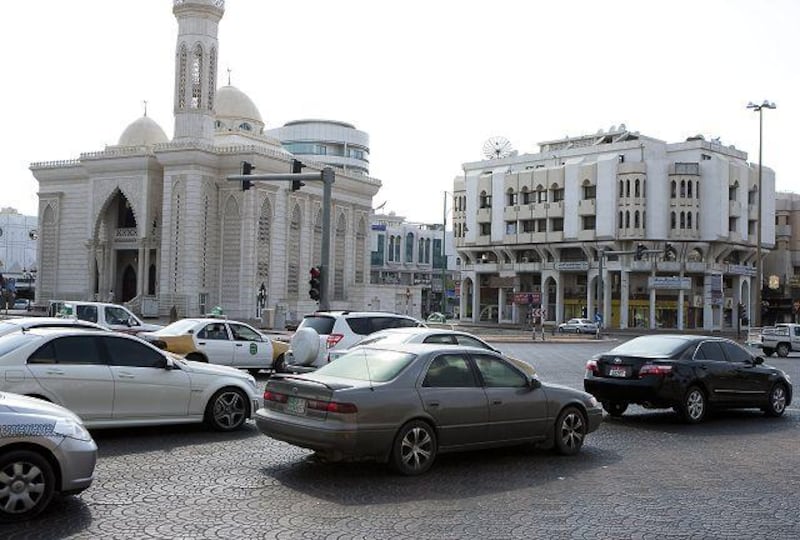AL AIN // The movement of traffic in the garden city will come under central control in a project initiated yesterday that involves the municipality, police, civil defence and the transport, engineering and road safety departments. The whole project will take just under three years. Dr Muhammad Mustafa, director of IBI Gulf, the company hired to set up the system, said it would serve the community by allowing traffic control from a centralised location. Traffic and informational signs can be controlled and monitored using closed-circuit television and other technology.
"The Al Ain Traffic Management Centre will manage traffic, public transportation, incident and emergency response, police safety, enforcement and security operations management," Dr Mustafa said. "It will provide traveller information services, commercial vehicle operations management and will provide smooth, smart and safe movement of all modes of transport in an efficient and friendly manner. "IBI will implement the project for two years and operate the Al Ain Traffic Management Centre for one year."
Traffic flow in the central business district will be tackled first, with the rest of the city later. "In all of Al Ain, there are a total of 41 traffic signals and 22 pedestrian-crossing signals," Dr Mustafa said. "The current project will control 21 of those traffic signals and 12 of the pedestrian signals located in the commercial downtown district." IBI began examining the traffic needs of Al Ain in October. Over four days, a van with four high-resolution video cameras, route-mapping software and GPS technology studied the streets and traffic patterns of the city. It covered a 70km route through the city and mapped 82km of main roads.
According to Dr Mustafa, the project will need a number of weeks for further study, and to prepare designs, specifications and tender documents to interested parties. The system should be fully functional in about 32 months. Organisations involved include Al Ain Municipality, the Department of Transport, Al Ain Traffic Police, Civil Defence, and the Engineering and Road Safety Department. During a meeting with IBI yesterday at the Al Ain Rotana Hotel, consultants from the transport department voiced concerns that the IBI study was not extensive enough and did not address problem traffic areas outside the central business district, such as at the Al Ain-Buraimi border point, and congestion in the school districts.
But Dr Mustafa said more work would be done: "This is just the kick-off meeting." Col Humaid Saeed al Azri of the traffic police praised the initiative and the study, but added that the industrial district needed to be studied and contingency plans needed to be made for certain areas at specific times of the year. He cited the Ain Al Fayda district as an example of an area that suffers congestion during the summer and on national holidays, when tourists descend on the city.
Dr Mustafa said that those concerns would also be studied. @Email:ealghalib@thenational.ae






